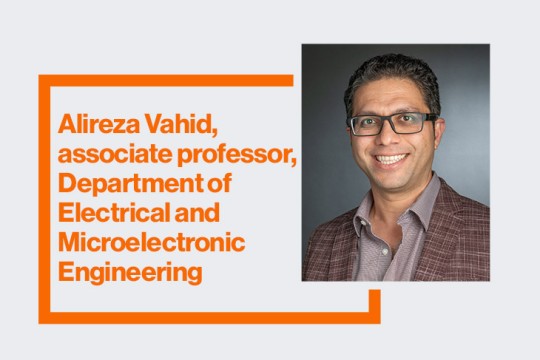NTID Wins Grants For Web-Based Projects
Project Solve, which is supported by a three-year grant from the Fund for the Improvement of Postsecondary Education (FIPSE), provides problem-solving instruction and guided practice for mathematical word problems. The Reading/Writing Center, funded through the New York State Department of Education’s Vocational and Technology Act (VATEA), is a Web-based remote tutoring solution for students.
Project Solve addresses a critical problem faced by many students—inadequate preparation and practice in problem solving and analytical thinking. The Web site, offered through NTID’s Department of Research, offers a range and variety of problems presented in language typically found in college entrance exams and college math courses. An optional help menu provides concise written and graphic information to assist students in conceptualizing each problem situation and identifying relevant information for calculating a correct solution. Project director and principal investigator of Project Solve is Associate Professor Ronald R. Kelly of NTID’s Department of Research. Professor Harry G. Lang of the same department is co-principal investigator.
Reading/Writing Center project directors Simon Ting of the Instructional Design and Evaluation Department and Rose Marie Toscano of the Liberal Arts Support Department have created a remote center combining tutorials with synchronous communication tools. Students can work independently on self-paced lessons as well as consult teachers in real time on the Web. The center consists of the Reading Tutor, the Writing Tutor, and the Web Homeroom.
Ting says the project’s goal "is to create a cost-effective way to deliver assistance to under-prepared deaf learners."
Ting and Toscano have collaborated since 1998 to develop a Web site to teach a two-course sequence in Writing and Literature I and II. The site includes a student discussion board area, electronic submission of homework and student essays, electronic teacher feedback and grading system, an announcement board for the class, and an authoring system for creating Web-based readings and lecture notes.
For more information about Project Solve, contact Kelly at rrkncp@rit.edu. For more information about the Reading/Writing Center, contact Toscano at rmtnge@rit.edu or Ting at sktnmp@rit.edu.
The first and largest technological college in the world for students who are deaf and hard of hearing, NTID, one of eight colleges of RIT, offers educational programs and access and support services to 1,100 students from around the world who study, live, and socialize with 14,000 hearing students on the RIT campus. Web address: www.rit.edu/NTID.
See www.rit.edu/ntid/newsroom for more NTID news.














